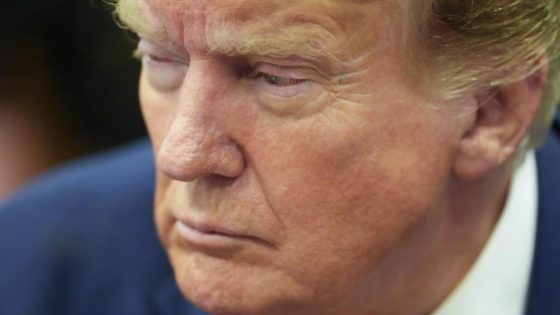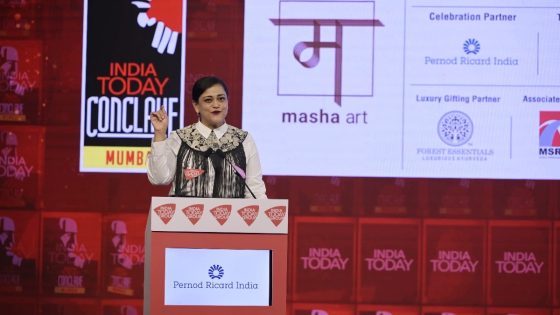A lawyer for Donald Trump has asked a federal appeals court to overturn a $A7.4 million jury verdict finding Trump liable for sexually assaulting and defaming the writer E Jean Carroll, who accused him of raping her nearly three decades ago.
Much of the oral arguments before the 2nd US Circuit Court of Appeals in Manhattan on Friday turned on a claim by Trump’s lawyer that the trial judge should not have let other women testify that the Republican presidential nominee sexually mistreated them decades ago.
Wearing a blue suit and red tie, Trump showed little emotion during the arguments, but shook his head when Carroll’s lawyer Roberta Kaplan accused him of a pattern of “chatting up” women before he “pounced” on them.
The panel of three judges, all appointed to the bench by Democratic presidents, did not say when it would rule.
Trump is appealing a May 2023 civil verdict stemming from his alleged mid-1990s encounter with Carroll in a Bergdorf Goodman department store dressing room in Manhattan, and an October 2022 Truth Social post where he called Carroll’s claim a hoax.
Jurors awarded the former Elle magazine advice columnist a respective $US2.02 million ($A3 million) and $US2.98 million ($A4.42 million) for her sexual assault and defamation claims.
A different jury ordered Trump in January to pay Carroll $US83.3 million ($A123.6 million) for having defamed her and damaging her reputation in June 2019 after she first accused him of rape.
In both denials, Trump said he didn’t know Carroll, that she was “not my type,” and that she made up her story to promote her memoir.
Both trials were overseen by US District Judge Lewis Kaplan, who is not related to Roberta Kaplan. Trump is separately appealing the $US83.3 million ($A123.6 million) verdict.
Carroll also attended Friday’s arguments, wearing a dark blazer and suit with a navy blue hair ribbon. She and her lawyers did not talk with reporters after arguments ended.
Trump criticised Judge’s Kaplan’s admission of testimony from two accusers, Jessica Leeds and Natasha Stoynoff.
Leeds said Trump groped her on a plane in the late 1970s, while Stoynoff said he forcibly kissed her at his Mar-a-Lago estate in 2005.
John Sauer, a lawyer for Trump, called the case “a textbook example of implausible allegations being propped up by highly inflammatory, inadmissible propensity evidence.”
He also called the case “a quintessential he said, she said case” brought by a woman with a political motive to hurt Trump – Carroll is a Democrat – and funded by Trump’s enemies.
Circuit Judge Denny Chin cautioned, however, that “it’s very hard to overturn a jury verdict based on evidentiary rulings.”
Sauer also objected to Judge Kaplan’s letting jurors see a 2005 Access Hollywood video where Trump graphically described how famous people like himself could have sexual relations with beautiful women.
Carroll’s lawyer Kaplan said Trump had a habit of allowing “pleasant chatting” with women to spiral out of control, and then strongly denying their accusations he did anything wrong.
Circuit Judge Susan Carney asked her for assurance that the jury wasn’t unduly affected by Leeds’ testimony, if her accusations proved “too remote (and) too unlike the circumstances that your client alleged.”
Kaplan said she could. “I was going through the evidence at trial,” she said. “It was incredibly powerful.”
Though the first jury stopped short of finding that Trump raped Carroll, Judge Kaplan said its verdict made Trump’s June 2019 denial defamatory, leading to the $US83.3 million ($A123.6 million) verdict.
Carroll’s cases are separate from multiple criminal cases against the former US president.
Trump has yet to be sentenced in Manhattan state court in a hush money case, after being convicted in May of falsifying business records to cover up a payment to silence a porn star ahead of the 2016 election.
Source Agencies


